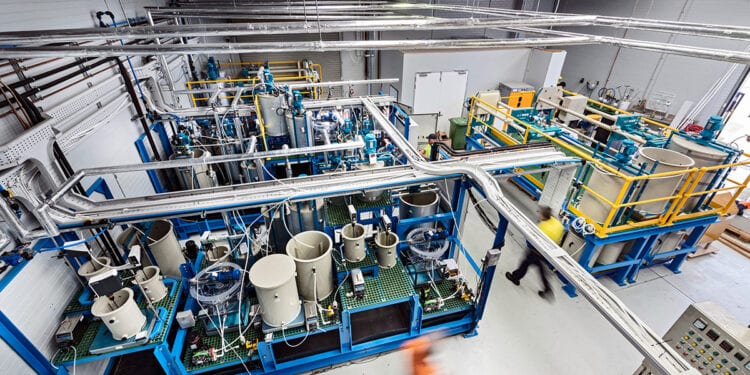New studies has increased Lepidico Ltd’s (ASX:LPD) confidence that its integrated Karibib Project and Phase 1 Chemical Plant could be amongst the lowest CO2 intensity lithium hydroxide producers in the industry.
Managing Director, Joe Walsh, said the results achieved from its first carbon intensity assessment for the integrated project compare favourably with both existing and planned lithium hydroxide production from brine and spodumene sources.
“Furthermore, this analysis does not take into account the potential to reduce Phase 1 Project carbon intensity from either co-products or by augmenting power from renewable sources. Such opportunities are being evaluated with the objective of this Project producing amongst the lowest CO2 intensity lithium hydroxide in the industry,” Mr Walsh said
A recent industry report presented estimates for CO2 intensity of lithium hydroxide produced from two brine operations in South America and one spodumene mine in Western Australia with chemical conversion in China. A preliminary CO2 assessment for the Phase 1 Project Feasibility Study reveals favourable results versus these existing nominal battery grade producers.
It is noteworthy that a number of new spodumene converters are planned to be built in Western Australia, which are predicted to have CO2 intensity in the range of eight to 10 t/t.
Mr Walsh said attributes that contribute to the competitive CO2 intensity for Lepidico’s integrated Phase 1 Project include: modest strip ratio at the Karibib Project of 3.7 to 1 life-of-mine and just 0.3 to 1 over the first two years; no energy intensive roasting/calcining process; LOH-Max low energy intensity lithium hydroxide process; and a carbon credit from by-product amorphous silica, which is planned to be sold as a supplementary cementitious material.
Lepidico has also identified opportunities to materially reduce the CO2 intensity of the Phase 1 Project. Currently no carbon credit or co-product accounting is assumed for the production of sulphate of potash (SOP), caesium or rubidium or the gypsum rich residue.
These products have the potential to significantly reduce the CO2 intensity for the Project and are being evaluated in the Feasibility Study.
Lepidico is also investigating alternatives for augmenting base load power in both Namibia and Abu Dhabi with competitive tariff solar generation.
“Collectively these opportunities have the potential to make the integrated Phase 1 Project amongst the lowest CO2 intensity lithium hydroxide producer in the industry,” Mr Walsh said.












